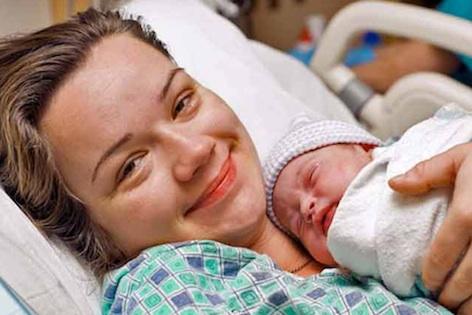Every year around 4,800 Aussie mums will require a transfusion of blood and blood products at the time of birth and according to recent research by the Kolling Institute at the University of Sydney, that number is increasing.
“We found that, although blood transfusion at the time of birth is uncommon, there has been an increase over time in obstetric blood transfusions,” said Associate Professor Jane Ford.
“The majority, around 80%, of these transfusions are for excessive bleeding (haemorrhage) and altogether, around 4,800 women in Australia require a blood transfusion around the time of birth each year.
“While we can identify some women at increased risk of excessive bleeding, this is often an unpredictable event.
“Blood transfusion remains a potentially lifesaving intervention for the one in 10 women who experience haemorrhage following birth.”
The Kolling Institute has been working with the Australian Red Cross Blood Service to develop a better understanding of how donated blood is being used, as one way of helping the Blood Service to plan and manage Australia's blood supply more effectively.
“This research has focused on analysing blood usage amongst this group, and the next phase will be examining why increased usage has been occurring," explained Professor David Irving of the Blood Service.
“Understanding what is currently happening and why assists us when working with health providers about when these blood transfusions are needed.”
According to the Blood Service, almost one-in-three people in Australia need fresh blood or blood products at some stage in their lives. This number is anticipated to increase as people live longer and the incidence of disease such as cancer also rises along with the ageing population.








 Agree (0)
Agree (0) Disagree (
Disagree (











__small.png)










